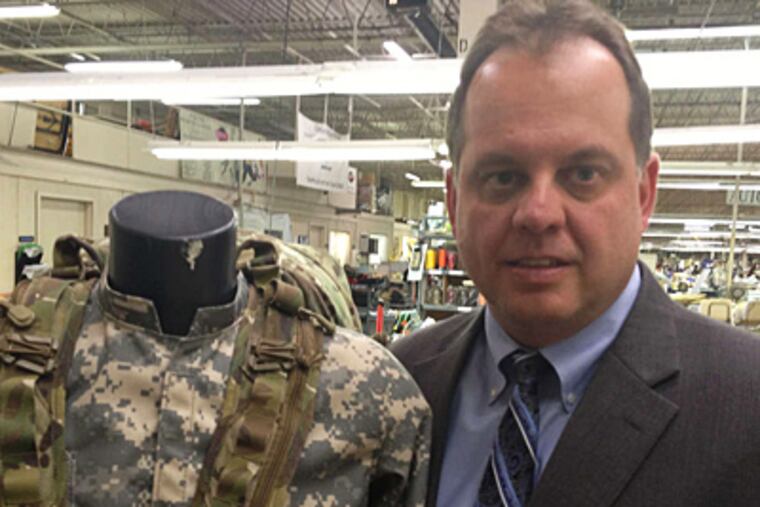Talking Small Biz: Feltonville bag man dreads sequester
SEQUESTER IS NOT just an abstract idea conjured up by the political class in Washington to describe budget cuts set to begin March 1.

SEQUESTER IS NOT just an abstract idea conjured up by the political class in Washington to describe budget cuts set to begin March 1.
Not to Robert L. Rosania, chief executive of Ehmke Manufacturing Co., an industrial-textile manufacturer in Feltonville that makes custom-sewn fabric products - bags, packs and other tactical gear - for the U.S. armed forces.
Rather, he sees the sequester as saddling his employees with unnecessary hardship.
The sequester was passed as part of the 2011 debt-ceiling compromise. It was supposed to be an incentive for a congressional "supercommittee" to cut $1.5 trillion in federal spending over 10 years.
The committee punted. Now, the initial $85 billion of cuts are at hand and split between domestic and defense programs.
Rosania, 49, who co-owns Ehmke with former high-school classmate Cliff Stokes, says 90 percent of the products Ehmke makes are used by the military.
Boeing is Ehmke's largest customer. Ehmke makes thermal acoustic blankets for the Chinook helicopter, which is manufactured at Boeing's plant in Ridley Park, Delaware County.
"Our products are needed, and they're going to be purchased, but the difficulty is the time between purchases may be extended and the payment process gets slowed down," said Rosania. "That will mean fewer orders, less-frequent orders."
Rosania, a Philadelphia native, lives in Cinnaminson, N.J. He graduated from the University of Pennsylvania with a degree in mechanical engineering and played football there from 1982 to '85.
Ehmke's corporate history is the stuff of legend. It was founded in 1929 by former Philadelphia Athletics pitcher Howard Ehmke after he retired from baseball. Ehmke opened a small textile company across from Shibe Park and began making the first tarpaulins to cover baseball diamonds during rain.
Rosania became a co-owner of Ehmke in 1993 and chief executive in 2000. Over the past four years, employees increased from 86 to 135 and revenues topped out at $12.5 million in 2012.
He worries that the sequester may mean furloughs for his workers. "We have a banner over our shop: Our troops deserve your best. That's our culture," he said.
I asked him what he says to employees at a time of uncertainty.
"You have to keep them well-informed," he said. "You have to maintain that level of trust and make sure they're aware you're doing the absolute best for them."
He's had offers to move the company out of Philadelphia.
"We've had offers to move down South or look at offshore opportunities to supplement what we do," he said. "That's not who we are. The folks who work here are neighborhood people we have a responsibility to, and we take that seriously."
That kind of thinking seems to be missing in Washington now.